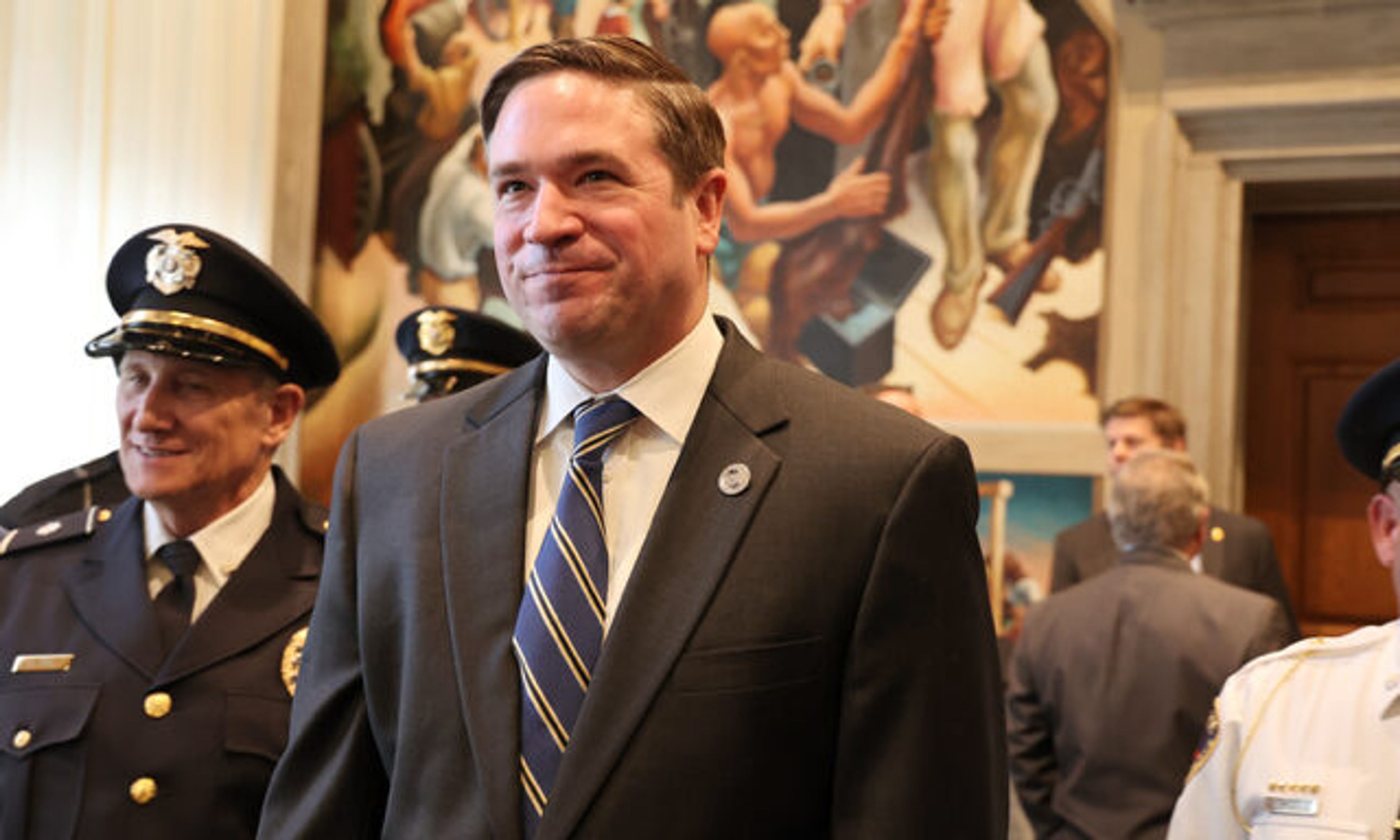Administration won't pursue trade cases
WASHINGTON -- The Bush administration said Wednesday it has decided not to investigate allegations of Chinese labor rights violations and currency manipulation, arguing that diplomatic engagement is a better way to combat America's record trade deficit with China. ...
WASHINGTON -- The Bush administration said Wednesday it has decided not to investigate allegations of Chinese labor rights violations and currency manipulation, arguing that diplomatic engagement is a better way to combat America's record trade deficit with China. Some business groups praised the decision, saying the administration had exhibited political courage to choose diplomacy over confrontation with China, especially in an election year where rising anxiety over job losses to foreign competition has become a major issue.
The United States ran up a record $124 billion trade deficit with China last year.
But the AFL-CIO, which had petitioned the government to take its labor rights' case, blasted the decision as "an outrage and an insult" and Sen. John Kerry, the presumptive Democratic presidential nominee, said that when it came to China "this White House is all talk and no action."
In China, the official Xinhua News Agency carried word of Washington's announcement but no commentary or reaction to it. China's Trade Ministry had no comment, a spokeswoman said Thursday, and the Labor and Social Security Ministry said it did not know about the report.
The administration announced its decision at a joint news conference attended by four Cabinet-level officials, who all argued that efforts they are already pursuing offer the promise of greater payoff in trade terms than threatening punitive tariffs on Chinese goods by opening investigations into China's currency and labor rights practices.
"Accepting these petitions would take us down a path of economic isolationism," said U.S. Trade Representative Robert Zoellick. "That is a path we will not take."
"Economic isolationism" is a term that President Bush has used to attack trade proposals being advanced by Kerry that the administration contends are protectionist and would do more harm than good for U.S. workers and consumers.
The administration rejected a petition the AFL-CIO filed last month contending that China's abuse of worker rights amounted to an unfair trade practice under Section 301 of U.S. trade laws that had given China a wage advantage of between 47 percent and 86 percent and had cost the loss of an estimated 727,000 U.S. factory jobs.
The trade federation asked the administration to conduct an investigation into its complaint, which could have led to penalty tariffs on Chinese imports if the administration had found the labor violations to be true.
AFL-CIO President John Sweeney said the administration's rejection of the labor complaint "was an outrage and an insult to American and Chinese workers" and showed Bush will not stand up for American workers.
In a statement issued by his campaign, Kerry said, "I am going to fight to keep U.S. jobs in America and I'm not going to sit idly by when China or any other nation pursues policies that hurt our economy."
In the currency complaint, the Fair Currency Coalition of 40 business and labor groups, led by the National Association of Manufacturers, was preparing a Section 301 case alleging that China's policy of tightly linking its currency to the U.S. dollar represented an unfair trade practice that had undervalued the Chinese currency by as much as 40 percent, giving Chinese goods a huge competitive advantage over American products.
U.S. Treasury Secretary John Snow told reporters at the news conference that the administration felt it was making great progress in its diplomatic efforts to get China to make the economic reforms necessary, such as bolstering its weak banking system, to allow the Chinese currency to float freely at some point in the future.
He said Treasury Undersecretary John Taylor and Paul Speltz, the administration's point person on the currency issue, will hold further talks with the Chinese on the currency issue in early May.
Frank Vargo, a National Association of Manufacturers vice president for international affairs, rejected Zoellick's argument that the currency petition was a step toward "economic isolationism." He noted that there are bills in both the House and the Senate that would impose across-the-board punitive tariffs on Chinese products unless the Chinese revalue their currency.
"The whole point is to avoid economic isolationism and that means moving more quickly to a level playing field and that means a better valued currency," Vargo said.
The administration officials, including Commerce Secretary Donald Evans and Labor Secretary Elaine Chao, told reporters that they felt the better approach to take was to use upcoming negotiations over awarding China the designation it seeks as a "market economy" as the forum for addressing concerns about the currency issue and worker rights.
Several business groups praised the administration's decision.
"I applaud the administration for making the appropriate economic and trade decisions in a difficult political situation," said U.S. Chamber of Commerce President Thomas Donahue.
John J. Castellani, president of the Business Roundtable, said: "Promoting more trade and investment between the United States and China will help raise worker rights."
But the administration's action caused consternation in Congress among Democrats and even some Republicans from states that have suffered heavy manufacturing losses in recent years.
"The Bush administration assembled four Cabinet secretaries as a smokescreen to hide their do-little approach to China trade," said Rep. Sander Levin, D-Mich.
Connect with the Southeast Missourian Newsroom:
For corrections to this story or other insights for the editor, click here. To submit a letter to the editor, click here. To learn about the Southeast Missourian’s AI Policy, click here.








